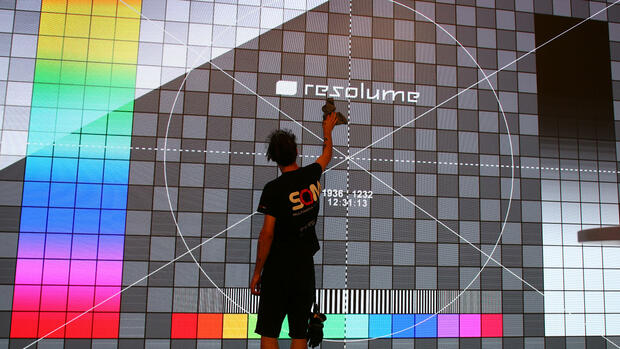Whether it’s size, sound or image quality, at the Ifa electronics fair, the manufacturers of televisions, household appliances and audio systems outbid each other with superlatives every year. However, in view of the energy crisis, many companies are currently setting a different focus: it is about sustainability – especially consumption.
For example, Grundig will present its presentation under the motto “A future without eco-fear”, Miele will guide visitors through a “Sustainability Alley”, and Samsung will formulate the claim to become the “number one brand in energy efficiency”. The fair is as green as ever.
The marketing is not surprising. Awareness of climate change has been growing for several years, and now the war in Ukraine is driving up energy prices. “Sustainability has clearly come to the fore, especially for large manufacturers of household appliances,” says Alexander Dehmel, industry expert at market researcher GfK.
In fact, consumers are increasingly turning to energy-efficient products. However, it is not clear that the electricity consumption of households will decrease sustainably – due to the networking, new devices are always added that are connected to the socket. They can also be visited at the Ifa, which starts on Friday.
The corona boom ends for the electronics industry
Marketing sustainability is a source of hope for the industry. During the corona pandemic, consumers bought notebooks and screens, televisions and game consoles, freezers and juicers to prepare for life in lockdown. Sales of such technical consumer goods grew by a total of around 17 percent to 1.4 trillion US dollars in 2020 and 2021, as GfK has determined.
However, in the face of great economic uncertainty, many consumers are keeping their money together. The business of the electronics industry is likely to shrink this year – albeit to a level that is higher than before the pandemic. There are currently opportunities, especially for products that reduce consumption and thus costs, said Sara Warneke, head of the Ifa organizer GFU.
Energy efficiency is not a new topic for the manufacturers of household appliances, emphasizes Volker Klodwig, Head of Germany at BSH. The Bosch subsidiary’s market research shows that many customers pay close attention to consumption. “Anyone who can’t keep up here has a substantial competitive disadvantage.“ The current discussion about energy prices only provides an additional boost.
In fact, buying behavior is changing – at least for household appliances such as refrigerators, washing machines and dishwashers, which run frequently and for a long time. While in the first half of 2021, seven percent of the products sold reached the new energy efficiency class A, today it is already 14 percent, as GfK has determined. “The revised energy label has a major impact,” emphasizes market researcher Dehmel.
Bosch subsidiary BSH’s booth at the IFA
The manufacturers of household appliances are therefore developing technologies that reduce consumption – for new series, the cycles take several years. There are washing machines that use algorithms to determine the most efficient washing program, refrigerators that keep food fresh longer due to water mist, and energy management systems that start devices when the solar cells on the roof supply a lot of electricity.
In some cases, however, simple measures already do it. Many people are not even aware of how easy it can be to save energy,“ says Axel Kniehl, Managing Director Marketing and Sales of the Miele Group. The home appliance manufacturer, which sees itself as a pioneer in sustainability, is therefore introducing an overview in its app that shows the consumption of the connected devices.
If the customers agree, they should receive energy-saving tips in the app in the future. They could then, for example, wash the laundry at a lower temperature or wash dishes with the eco–program – this is rarely used so far. Through networking, manufacturers gain insights in real time.
Selling out even without Ifa
For digital home technology, called “smarthome” in industry jargon, the energy crisis could mean a breakthrough into the mass market. In a survey by the IT association Bitkom, for example, 25 percent of the German ain said that they use digitally upgraded radiator thermostats – last year it was still 17 percent.
“Smarthome technologies can make a very concrete contribution to using less heating energy and electricity,” said Bitkom President Achim Berg. The manager is committed to government funding: “A VAT reduction for energy-saving technologies would be a sensible measure to focus on the devices.“
However, the demand is already high. Electronics manufacturer Tado, which sells a system for heating control, is currently experiencing record demand. The production volume for the entire year has been sold, says co-founder Christian Deilmann. That’s why the start–up is already scaling back its marketing – it can’t sell more at the moment anyway.







